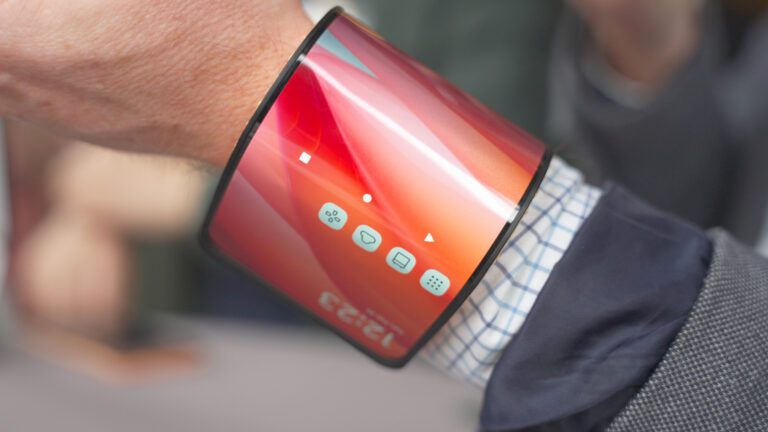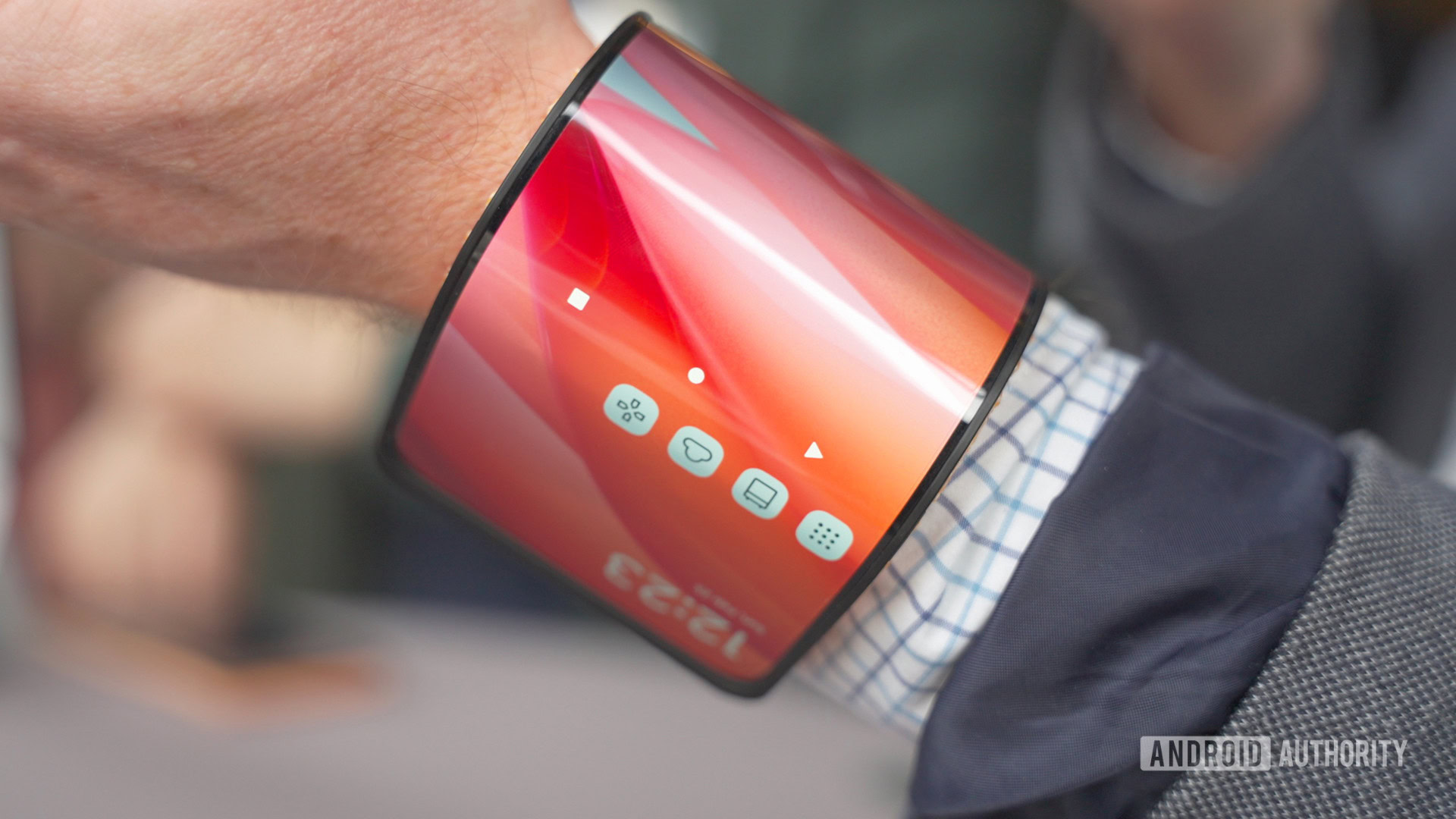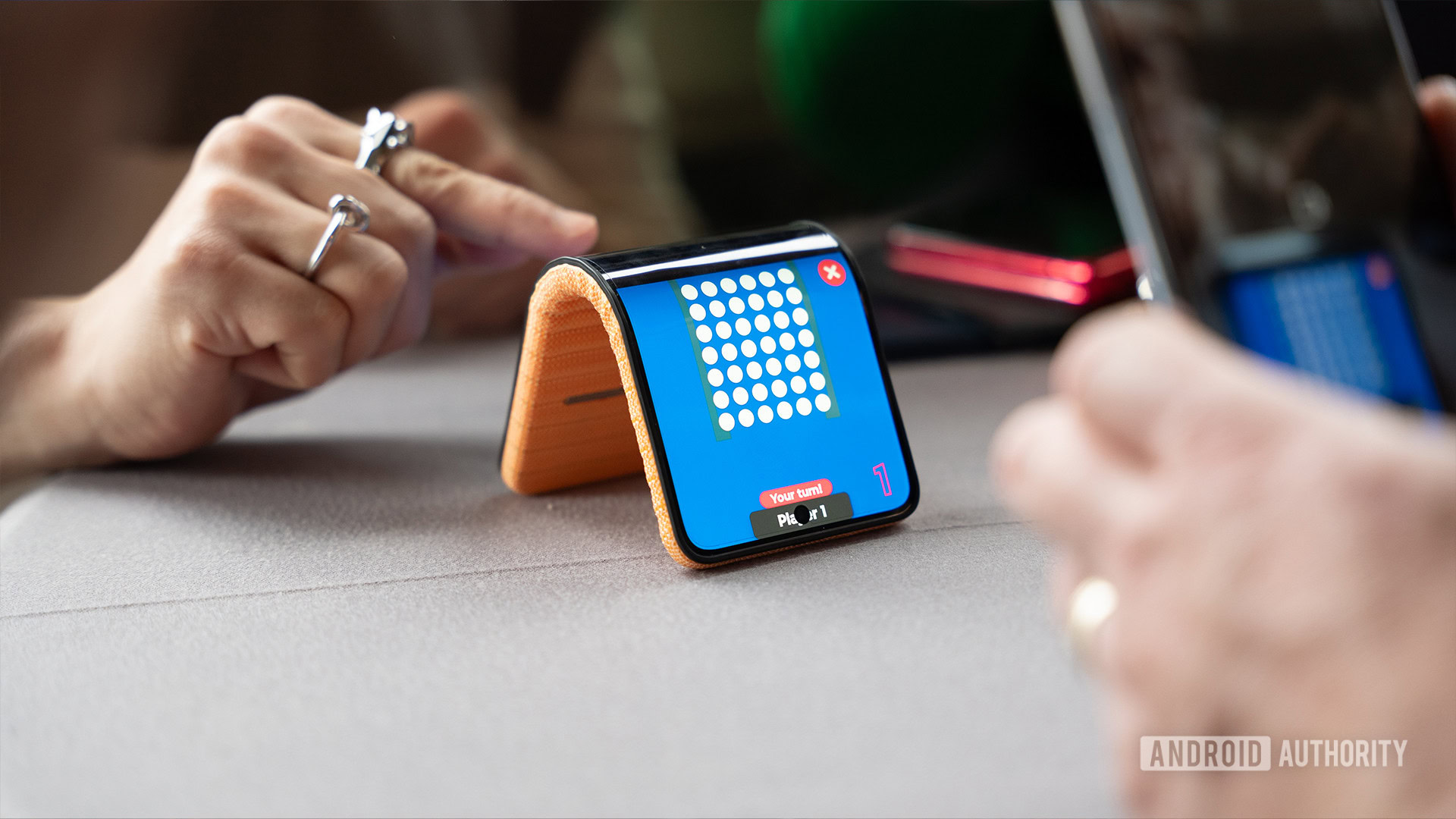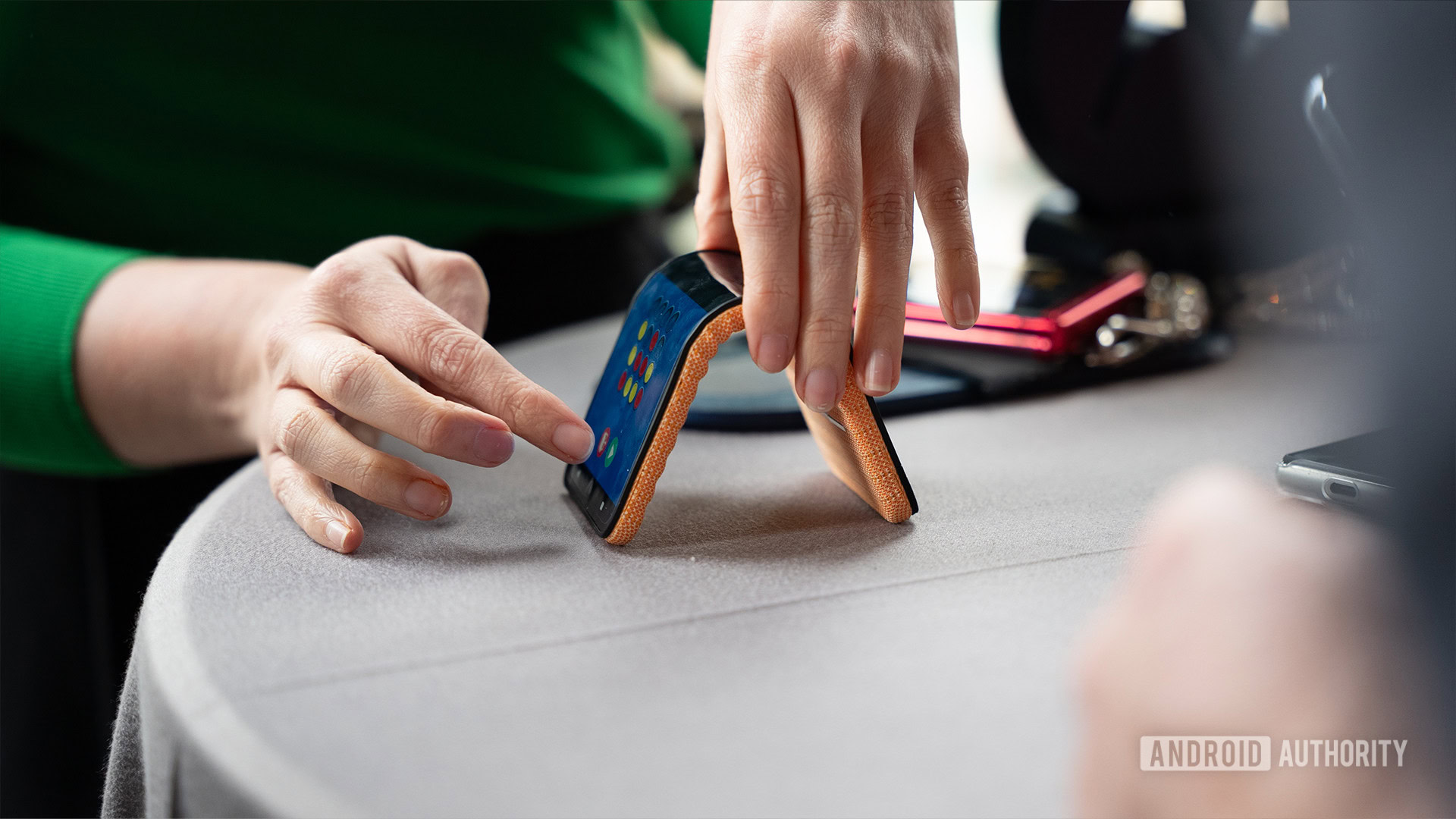
[ad_1]
Motorola thinks people may want phones that wrap around their wrists. We’re not convinced.
The smartphone maker first introduced the Adaptive Display concept last October, but we only got to see a few press shots back then. Now the concept has taken another small step towards reality and we got to experience it for ourselves at MWC.
First of all, you should know that the sole purpose of the Adaptive Display concept is to demonstrate…well, a concept. It was very clear, both from what Motorola told us and from seeing the actual device, that this is very much just a “what if” experiment and that we shouldn’t really expect to see it on the market anytime soon.
Because of this, we don’t actually have a lot of details about the product itself – all that matters is that it bends around your wrist. The handful of details we do have are the display size, which is 6.9 inches, and the fact that the screen is a plastic-based pOLED.

Paul Jones / Android Authority
From the front, the device looks like a slightly elongated, but otherwise regular smartphone. It’s only when you turn it around that you realize something is different. Instead of a hard shell, the back is made of multiple segments covered with a woven textile material that brings gym equipment to mind. The “soft” body is needed because the device needs to bend inwards, so it can’t be a metal or plastic unibody like a typical phone.
Because the device contains multiple hinges, it can bend into different shapes. You can make it into a little tent, which could come handy if you want to watch a tiny video. You can bend the bottom part to make it stand kind-of upright. Or you can wrap it around your wrist and turn into a chunky smartwatch of sorts. The catch is you need to put on a separate magnetic bracelet first so the device stays put, otherwise the fit is too loose.
The Motorola representative who demoed the Adaptive Display for us had it wrapped around her wrists and she was able to shake and move her arms without any issues. You can use the display in “watch mode,” but from what we’ve seen Motorola hasn’t bothered to create a special interface for this mode.

It’s obvious the Adaptive Display is too chunky and too rigid to really work as a smartwatch. So what’s the point of this whole exercise, you might ask? Who would want to wear their phone on their wrist? How much precious internal space does the hinge assembly take up? How does the textile-covered body handle water or sweat? There’s a bunch of questions that Motorola didn’t even try to answer. But that’s the nice thing about concepts – you can ignore the practical aspects and just focus on turning a single ambitious idea into reality.
While in its current incarnation, the Adaptive Display is much too clunky, we could see how a more refined version could catch on with certain demographics. For example, lots of people keep their smartphones in armbands when running and it’s not a huge leap to imagine they could just wrap them around their wrists instead.

Paul Jones / Android Authority
Motorola and its parent company Lenovo do have a history of revealing ambitious hardware concepts, and sometimes they do become real products. We’re willing to give the Adaptive Display the benefit of the doubt because of that. Speaking of it, Lenovo has an equally wild concept of its own at MWC 2024: a transparent-screen laptop that looks like a prop from a sci-fi flick. Go check it out.
[ad_2]